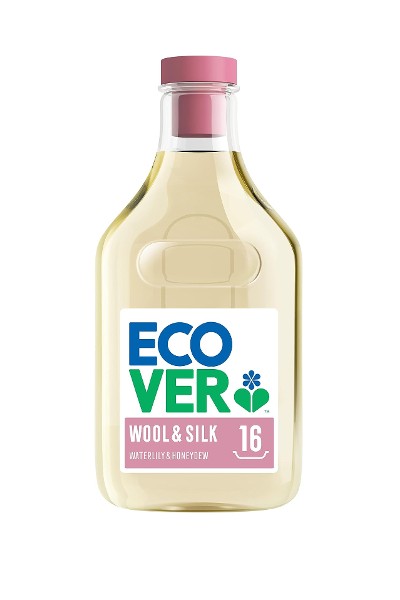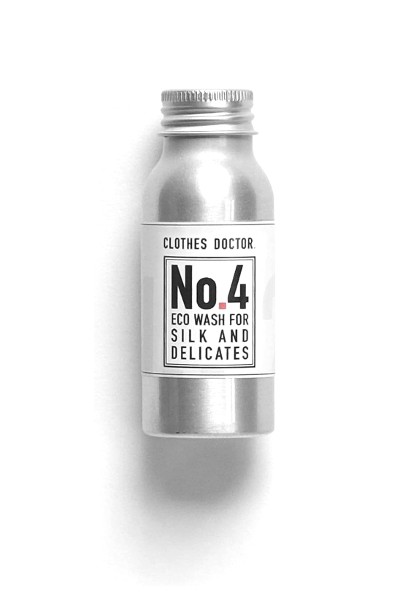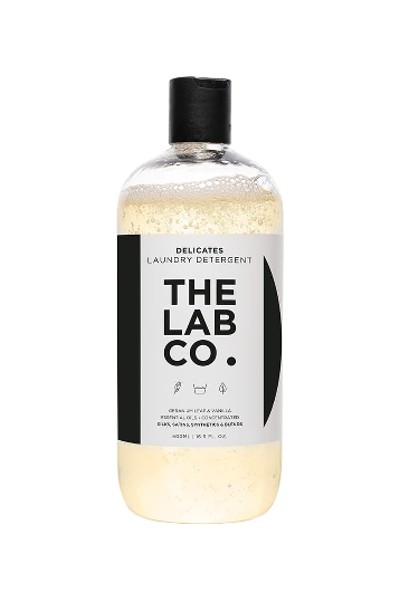How to wash a silk pillowcase – experts explain the dangers of washing this delicate item, and how to avoid any costly mistakes
Washing a silk pillowcase is easy when you know how to do it


Sign up to our newsletter for style inspiration, real homes, project and garden advice and shopping know-how
You are now subscribed
Your newsletter sign-up was successful
If you’re wondering how to wash a silk pillowcase safely, we’re here to help. Silk pillowcases are a luxurious addition to any bed, but they can require a little more TLC than your average pillowcase.
As such, I asked various cleaning experts for their top tips on how to wash this delicate item, including whether it's best to handwash or machine-wash silk bedding.
After all, experts agree that silk pillowcases and silk sheets help you sleep better, but there’s no denying that investing in silk bedding is expensive. So the last thing any of us wants to do is ruin our silk bedding on the first wash. This is how to get it right.
How to wash a silk pillowcase
‘Silk pillowcases are a luxurious addition to any bed, but they require a delicate touch when it comes to cleaning,’ says Natasha Brook, cleaning and laundry expert at Dr. Beckmann. ‘Washing them incorrectly can lead to damage, fading, or a rough texture that takes away from their signature softness.’
There are two main ways of washing a silk pillowcase: by hand and in the machine. But whichever option you choose, the one thing all of our experts agree on is that you need to use the right detergent.
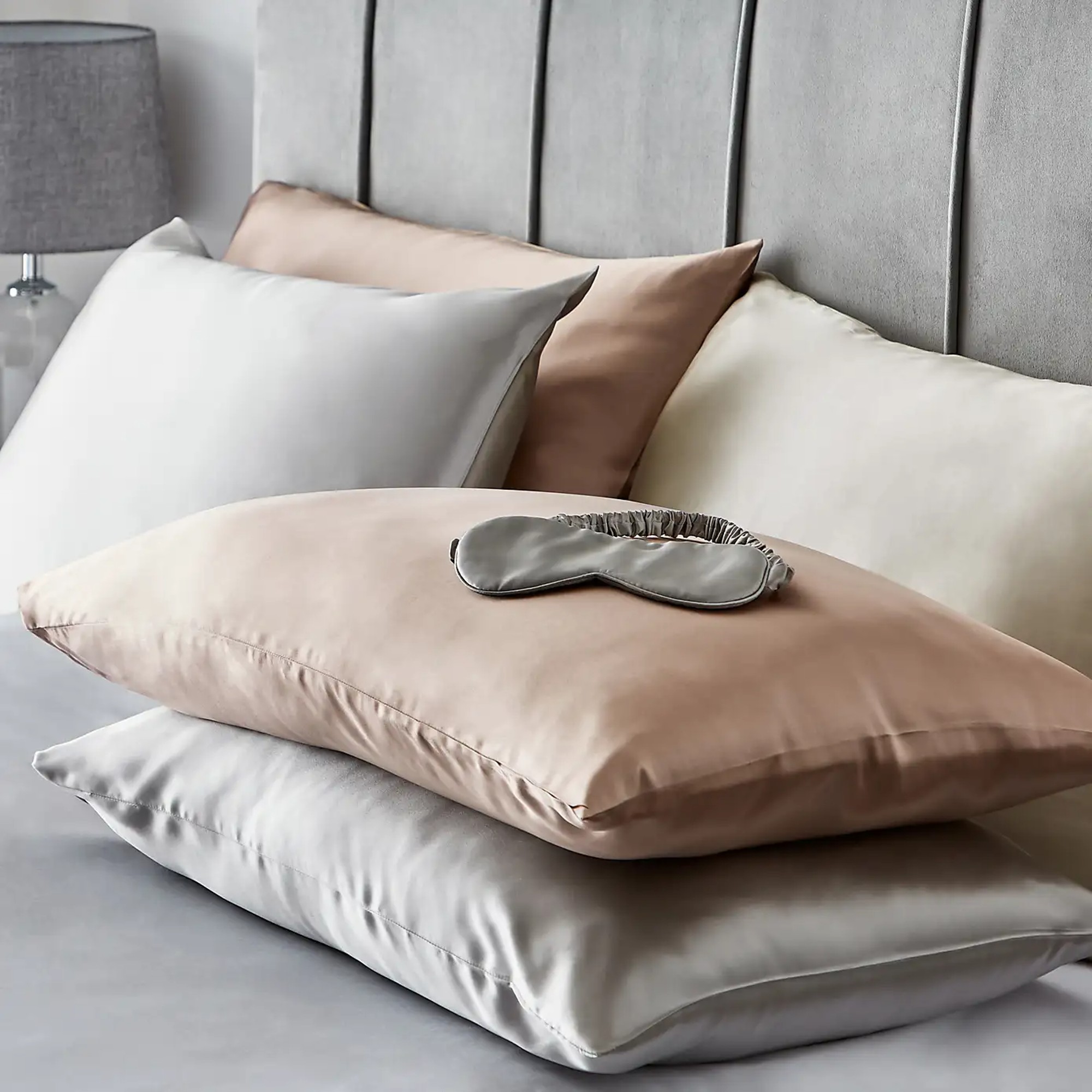
The right laundry detergent
When washing silk pillowcases, don’t use regular detergent. Instead, make sure you’re using a laundry detergent specifically designed for delicate fabrics like silk. Fabric softeners are also best skipped.
‘Use mild pH-neutral detergent specifically designed for delicate fabrics,’ advises Petya Holevich, cleaning expert at Fantastic Services. ‘Silk fabric is protein-based, and it’s very important to avoid using harsh chemicals when washing it, which also includes soap.’
Sign up to our newsletter for style inspiration, real homes, project and garden advice and shopping know-how
‘Use a wool or silk detergent,' agrees Joanna Ross, general manager of design at luxury bedding brand Sheridan. 'We recommend using a detergent that is free from optical brightening agents (OBAs) and bleaching agents. This is a very common ingredient in most of the detergents and is great for keeping whites white; however can also weaken and discolour certain fabric fibres.’
We've listed three of our cleaning experts' recommendations for washing silk pillowcases below.
How to handwash a silk pillowcase
Once you have a delicate laundry detergent in hand, it's time to get washing. Many of our experts recommend handwashing a silk pillowcase because the fabric's fibres are so delicate.
When handwashing, 'use a small amount of a gentle detergent with cool water and carefully swish the pillowcase around,' says Natasha Brook. 'Never wring or scrub as this can weaken the fibres.'
‘Rinse in cold water to maintain the silk's shine and prevent shrinking,' agrees Petya.
Then, 'press out excess water with a clean towel before lying flat to dry,' says Natasha. 'To maintain its smooth, luxurious texture, allow your silk pillowcase to air dry away from direct sunlight. With proper care, it will remain soft and glossy for years to come.'
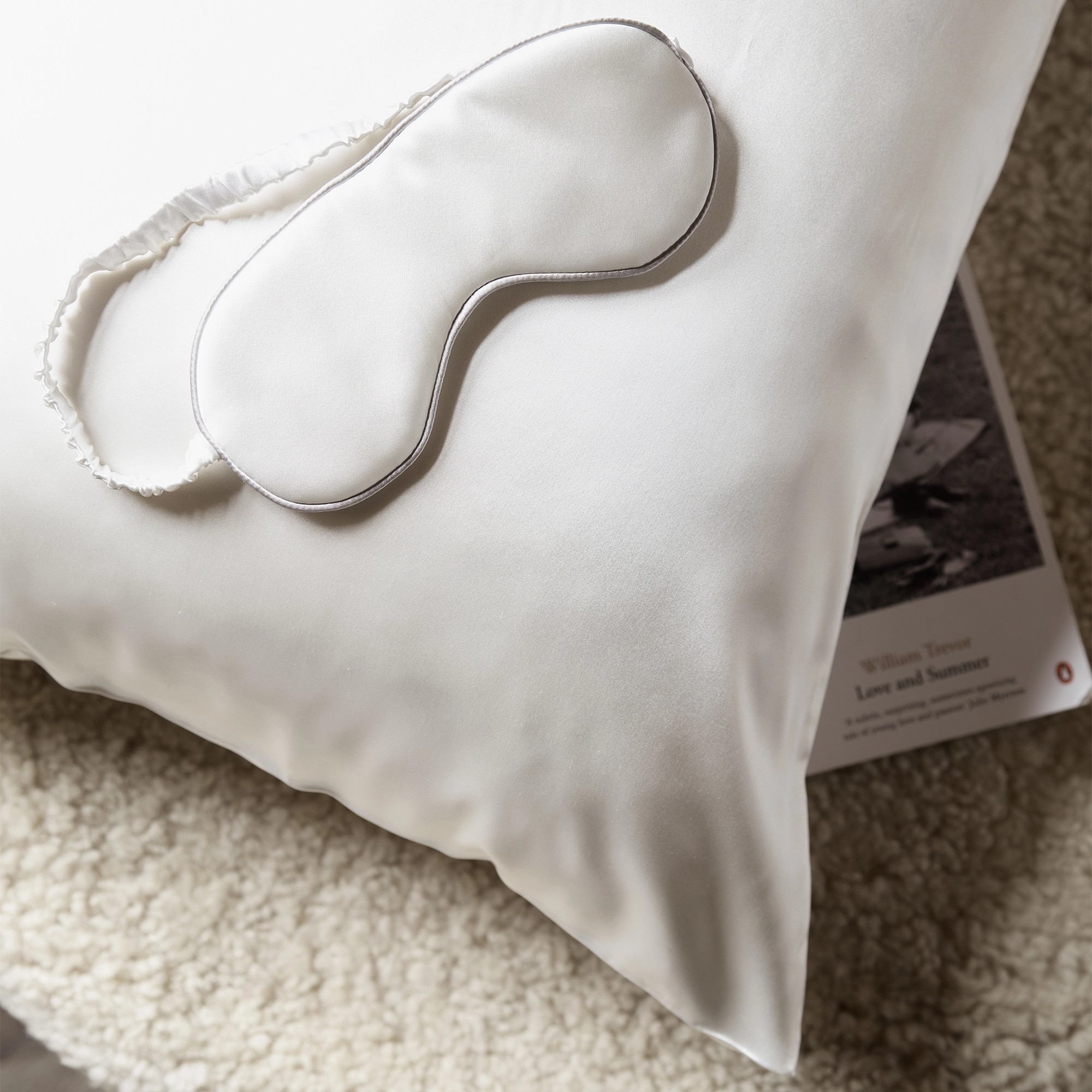
How to machine wash a silk pillowcase
You may also be wondering if you can machine-wash a silk pillowcase. The answer is yes, but it requires delicate care.
'Before placing the pillow case in the washing machine, turn the pillow case inside out to avoid damaging the delicate material,' advises Michael Forbes, lead product expert at washing machine manufacturer AEG, 'then, place in a mesh laundry bag.'
'Make sure you’re washing silk separately to other materials to prevent damage from rougher fabrics,' adds Michael. Then, 'put your washing machine on a delicate, cold-water cycle like the ‘Delicates’ or ‘Gentle’ setting... this helps to prevent shrinkage and damage to the delicate fibers.'
Natasha reminds us to 'always use a detergent formulated for delicates to protect the fabric and avoid bleach and fabric softener, as they can break down the silk’s natural sheen.'
Finally, avoid the temptation of tumble drying. 'Always airdry and never tumble dry,' warns Michale. 'You want to remember silk is a delicate material and avoid any wear or tear'. Instead, lay the silk pillowcase flat on a clean, dry towel and let it air dry there.

FAQs
Can you machine wash silk pillowcases?
‘Hand washing is the recommended option,' says Petya. 'But if you're using a washing machine, place the pillowcases in a mesh laundry bag and select the delicate or silk cycle.’
How often should you wash your silk pillowcase?
‘Silk pillowcases should be washed every 1 to 2 weeks, which will help maintain their cleanliness without exposing them to excessive washing, which can lead to fading and damage,’ Petya explains. ‘Besides that, if you use skincare or haircare products that may transfer onto the pillowcase, it'll be necessary to wash them more frequently.’
What happens if you wash silk with normal detergent?
There’s a reason why experts don’t recommend using regular detergent on delicate fabrics like silk. And that reason is the potential destruction of your favourite pillowcase.
‘Silk items should be cleaned with a special detergent for delicate fabrics, otherwise, they’ll be damaged. Avoid bleach and fabric softeners because they can damage the silk fibres. Instead, stick to gentle detergents without harsh chemicals,’ Petya advises.
So there we go, everything you need to know about how to wash a silk pillowcase to avoid any damage to this delicate item.

Amy is Ideal Home’s Sleep Editor and the Ideal Home Certified Expert on Sleep. She's spent the last five years researching and writing about what makes for the best night’s sleep during the day and testing out sleep products to find the best-in-class by night. So far she’s clocked up over 10,000 hours of pillow, duvet, and mattress testing experience.
Our go-to for all things sleep-related, she’s slept on and under bestselling products from Simba, Emma, Hypnos, Tempur, Silentnight, Panda, and many many more.
As a hot sleeper, Amy is always on the lookout for the most breathable bedding, but she also leads a wider team of testers to ensure our product testing encompasses both hot sleepers, cold sleepers, front sleepers, back sleepers, side sleepers, and everything in-between.
